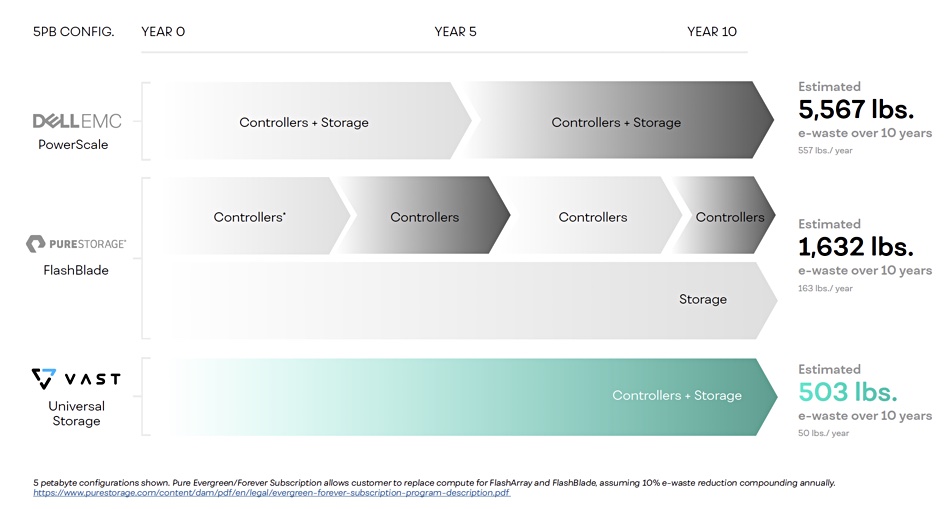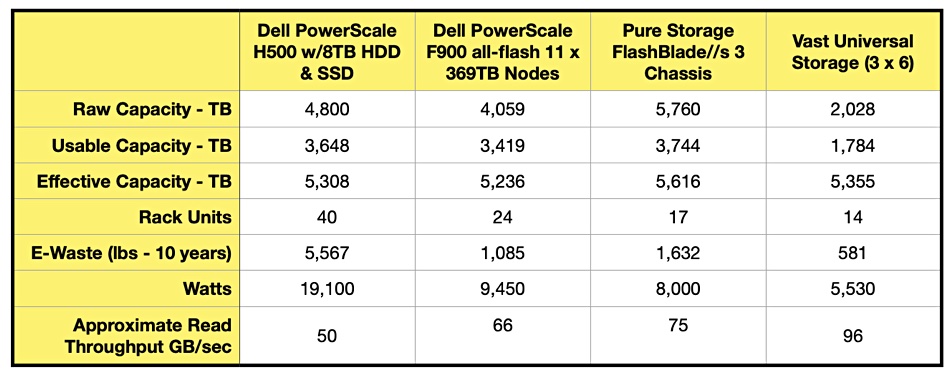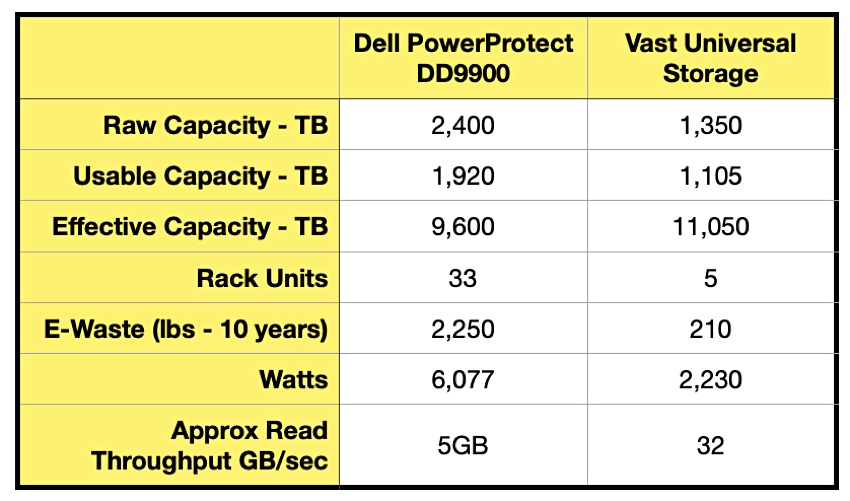VAST Data has published a sustainability report claiming its systems are more energy efficient than competing products from Dell, Pure Storage, and others, with a pledge that it will buy carbon offsets to make up the difference if other arrays beat it.
The report says its storage arrays, which it claims have superior data reduction as well as SSDs rated for 10 years’ use, are better in electricity usage and e-waste terms than competing disk, disk plus SSD, and all-SSD systems. It claims up to 90 percent energy cost savings over a 10-year span for a 5PB cluster when compared to legacy disk-based systems, and up to 50 percent versus hybrid storage products. Because its arrays are so efficient, fewer servers are needed and the savings in server energy costs can pay for the VAST storage, the company claimed.
VAST CMO and co-founder Jeff Denworth said: “Next generation all-flash doesn’t just provide new opportunities to realize significant storage power efficiency gains, but the conversion to scalable silicon storage also makes compute resources much more efficient. The result: even greater power savings across the datacenter.”
Dell and Pure Storage customers need more controller and storage refresh cycles than VAST, according to the report:

That means their replaced controllers and storage become e-waste.
The company says that, comparing VAST’s Universal Storage platform to legacy hybrid systems, VAST storage clusters can cut electricity consumption by nearly 400,000 kilowatt-hours (kWh) per year, eliminating approximately 283 metric tons of annual CO2 production per 5PB deployed. Its Universal Storage yields savings for customers around the world over a 10-year span; more than $500,000 in the United States, and more than $1 million in some European countries.
VAST says green-washing talk is cheap and the climate clock is ticking. If a customer can achieve better environmental and economic results from a technically comparable, modern data infrastructure platform, VAST will cover the difference in the form of carbon offset credits. Denworth said: “When you combine VAST’s approach to crucial areas such as energy efficiency and e-waste reduction, we’re answering the call to today’s energy-conscious enterprises with a, now guaranteed, solution to provide best-in-class infrastructure efficiency and longevity.”

The report compares 5PB effective capacity VAST systems against Pure Storage FlashBlade//S and Dell PowerScale all-disk, hybrid and all-flash systems, as well as a Dell PowerProtect purpose-built backup appliance on performance and energy-related criteria:

Pure Storage told B&F: “We believe we provide the most environmentally sustainable choice in storage. Given our well-established and industry-leading reputation for sustainability, some competitors may release their own sustainability information in an attempt to present their offerings positively.”
It then hit back directly at VAST: “Simply put, this information provided and the comparisons it purports to show appear to rely on unsupportable or unrealistic assumptions about their offerings. The information additionally appears to rely on imprecise or plainly inaccurate information regarding Pure Storage’s offerings. As a result, these comparisons convey clearly erroneous results.”
Pure says it reports its sustainability impact using industry-standard methodologies with Comparative Life Cycle Assessments using third-party auditors. VAST created its own report. Pure said: “We hold our sustainability accounting to the highest standards so that our customers can have confidence in their ability to reduce their environmental footprint with Pure.”
We have asked Dell if it has any response to the VAST document but it not did not wish to comment.








